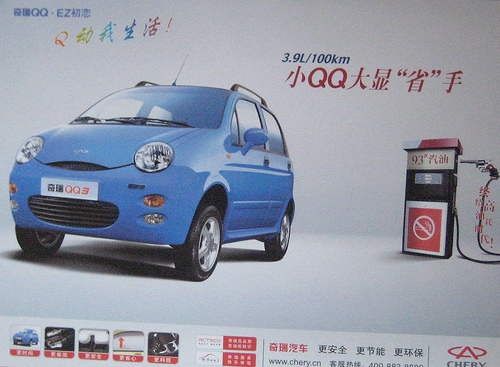
The Chevrolet Aveo is a Chevrolet in name only. This subcompact world car is a licensed and rebadged version of the Daewoo Kalos, and is sold in more than 120 countries under five different GM brand names. The Aveo is about as mass-produced as cars come, and as such suffers from a number of failures that a more niche car might not. One of the Aveo's most notorious faults lay in the emission system, and its self-destructing catalytic converters.
The Aveo uses a number of different systems to control its emissions output, and the aggregate whole is fairly impressive. GM's engineering department once issued a statement that said if the Aveo is driven in a highly polluted city like Shanghai or Los Angeles, the emissions coming from the tailpipe are less toxic than the air going in. Even so, this reputation is tainted slightly by the fact that many near-new Aveos have clogged catalytic converters that increase emissions and decrease fuel economy.
The problem is mostly with the Aveo converter's washcoat, the chemical coating that covers its internal matrix and is responsible for converting many of the harmful contaminants. The Aveo's catalytic converter uses a style washcoat that is very sensitive to certain types of contaminants and tends to accumulate them quickly.
Catalytic converters are essentially very high temperature ovens, and need a lot of heat to function. If the converter cannot retain enough of the exhaust stream's temperature, it can not reach "light-off," the temperature at which it burns off all contaminants, and will only partially convert the contaminants that pass through. Because the Aveo does not always produce enough heat to reach light-off, some of these contaminants can collect in the converter matrix's porous surface and clog it without ever being converted.
The symptoms of catalytic converter failure should be easy to recognize, but some drivers never do because it is so gradual. Like a steadily dimming headlight, the massive drop in power of a clogging converter might not be recognized before it becomes too severe to ignore. In addition to reduced power output, a clogged converter can cause engine overheating, which generally will not cause any severe damage before the engine stops running.
If a malfunctioning catalytic converter is ignored, eventually the engine will misfire and just refuse to run. If your engine is running rough and you see a check engine light, take your car to any mechanic with a code scanner, and tell them to reference Chevrolet Technical Service Bulletin (TSB) No. 20040109 for details. Replacement can run anywhere between $700 and $2,000, depending on the type of converter used.